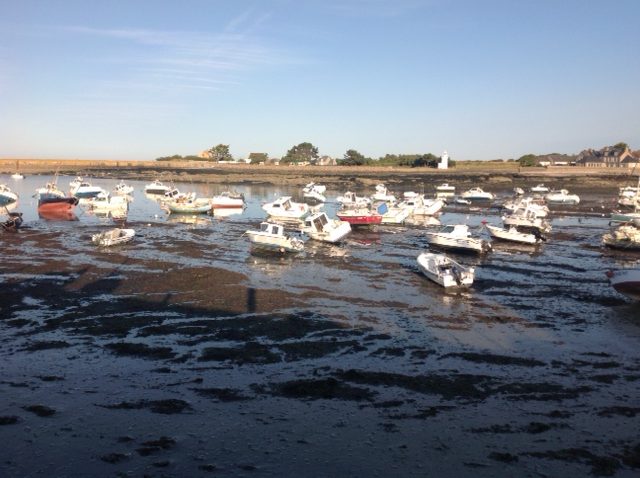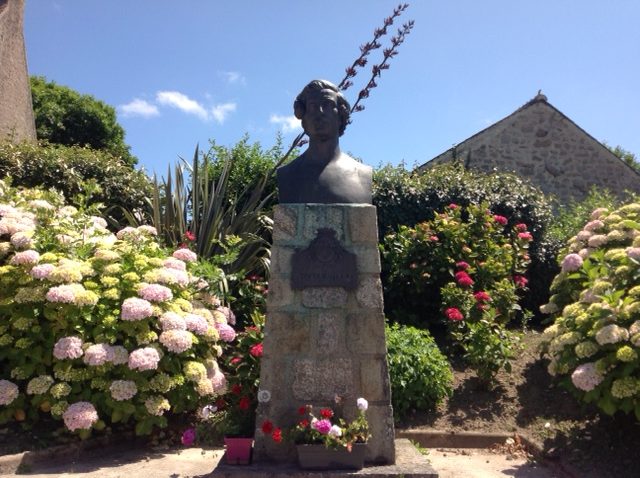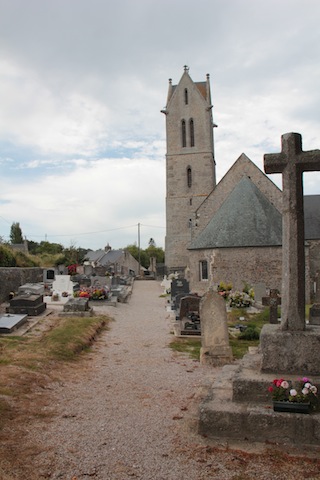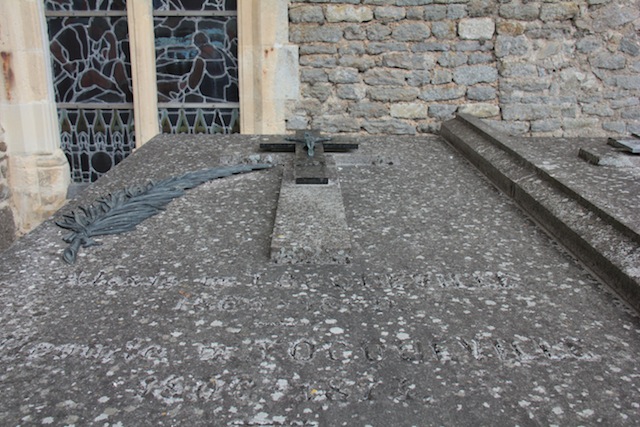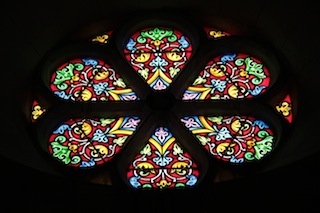The weather forecast called for 17° -19° C on most days in July. But with the sun, it felt more like 30°C, which can easily go unnoticed due to the constant breeze.
This food below is the reason for going to the French coast. So my husband can feast on seafood every day. My selection of dishes in seafood restaurants is rather limited, but the wine sure helps.
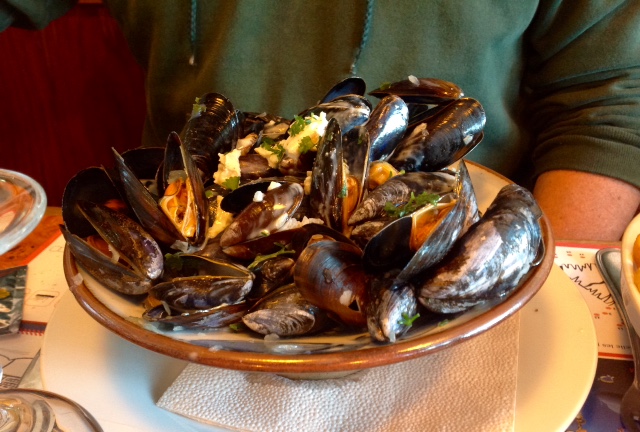
Every day, we took some short trips by car to visit other surrounding villages. Here we are in the village of Réville (population: about 1000), where we enjoyed some espresso, with the owner’s dog joining our table. I tried out my French on him. He walked away.
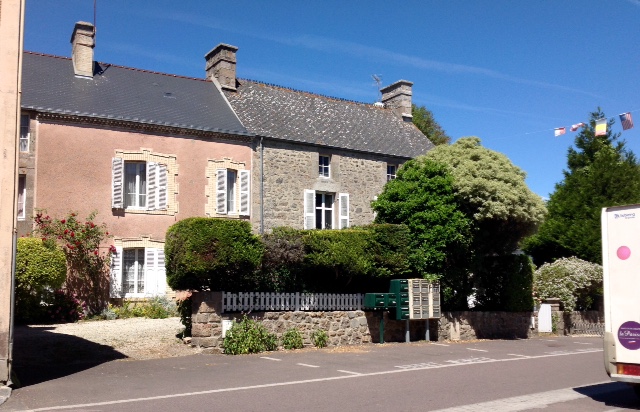
We also visited the local church and cemetery. I was very surprised to see sea glass used for decoration on graves. I collect it for other reasons…
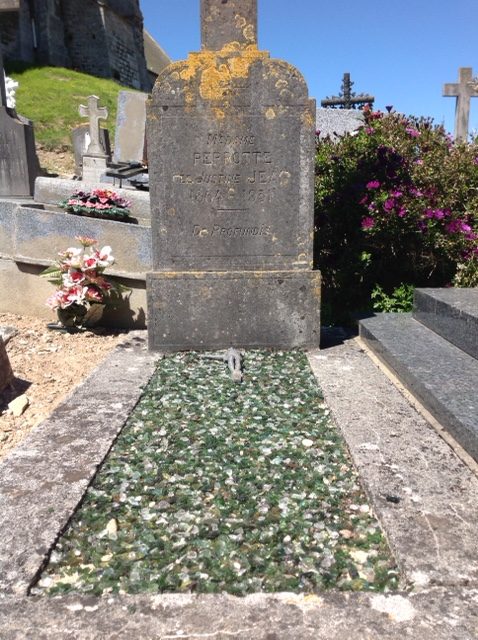
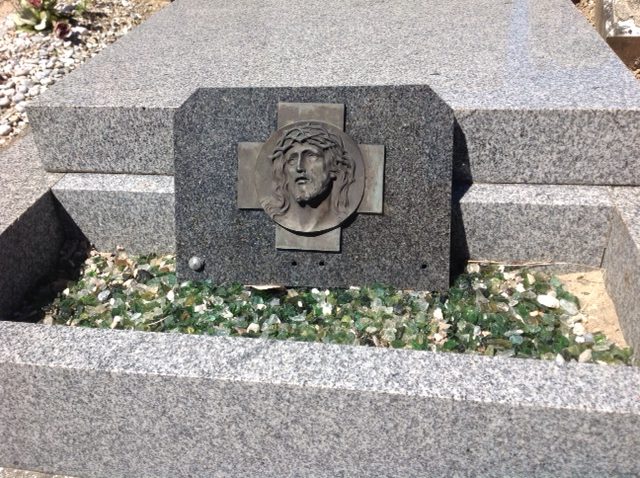

This statue by the famous French painter, Guillaume Romain Fouace, has a prominent place in the church. Fouace was born into a farm family in Réville in 1837. His tomb features a recumbent white marble statue of his daughter Beatrix (1875–1888).

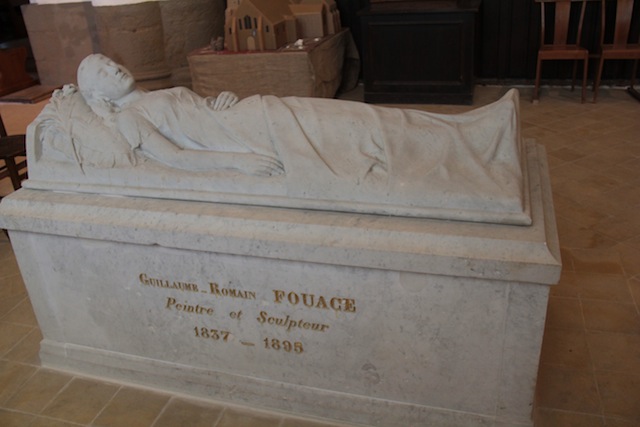
The Town Hall of Reville is still decked out from D-Day, and for future activities to come.

Seafood platter are about € 25 – 30 on average.
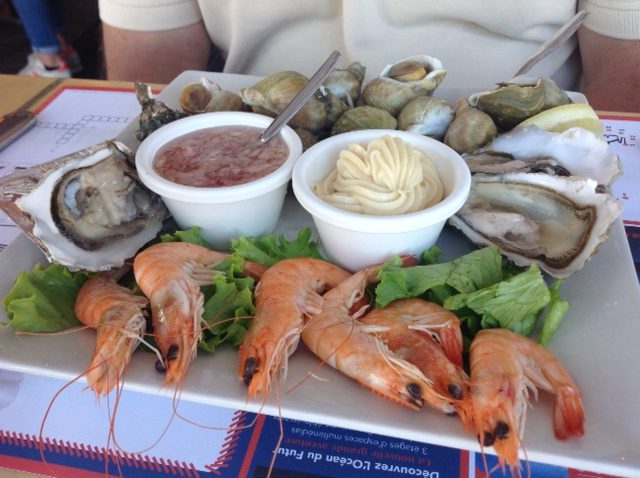
Every evening, when we left the restaurant after some wining & dining, the boats sure look a bit off. 🙂
